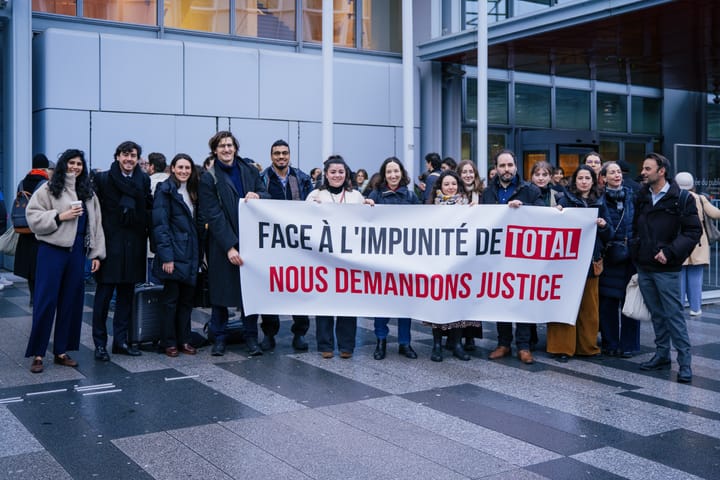Youth Climate Lawsuits In Canada Advance To Critical Hearing And Trial

A case challenging Ontario’s weakened climate policy could be on the verge of a precedent-setting victory after Canada’s Supreme Court denies government’s leave to appeal, while a suit against the Canadian federal government is set to go to trial next year.
Courts in Canada will soon have to determine whether inadequate government climate policies amount to constitutional rights violations, as climate lawsuits brought by young Canadians against their governments move forward.
In Ontario – Canada’s most populous province – a case brought by seven young applicants challenging their government’s weakened 2030 greenhouse gas emissions reduction target is nearing resolution, and potentially on the verge of a precedent-setting victory. The case, Mathur et al. v. His Majesty the King in Right of Ontario, argues that a law passed by the province in 2018 to repeal the prior 2030 target and replace it with a much laxer one effectively permits more planet-warming emissions and thereby contributes to worsening climate change, which disproportionately harms youth and future generations. That action, the lawsuit claims, violates youth applicants’ rights to life and security of the person and right to non-discrimination under the Canadian Charter of Rights and Freedoms (which is part of Canada’s Constitution).
The lawsuit, filed in 2019, survived the government’s bids to get it tossed out and was heard on the merits by the Superior Court of Ontario in 2022 – the first climate case of its kind in Canada to reach this evidentiary stage. The court accepted the factual evidence of climate change harms, but decided in April 2023 to ultimately dismiss the case based on what lawyers for the youth say was a flawed interpretation of the legal characterization of their case. The youth applicants appealed this ruling, and the Ontario Court of Appeal heard the case in January 2024. In October 2024 the appeals court ruled in the youths’ favor, overturning the lower court’s dismissal. The government subsequently lodged a request to appeal to Canada’s Supreme Court, which rejected that request on May 1.
Now, the case will go back to the Superior Court for another hearing that could resolve the central question of whether the government’s conduct in scaling back its climate policy – which would allow an additional 200 million metric tons of greenhouse gases to be emitted by the end of this decade – violates the constitutional rights of young people in Ontario.
“We will be going back as quickly as possible to the first court level, the superior court, for that finding we’re hoping for that there is in fact of breach of Charter rights here,” said Julia Croome, director of litigation practice at Ecojustice, an environmental law nonprofit supporting the youth applicants.
If the court does make this finding, Croome said it will set a precedent and send an important signal to Canadian governments that setting policy that is not aligned with climate science is unlawful.
Stepan Wood, professor and Canada Research Chair in Law, Society & Sustainability at the University of British Columbia, said that by rejecting the Ontario government’s request to appeal, the Supreme Court has now “set the stage for these young people to score an historic victory for environmental justice and government accountability when the case is re-heard by the Ontario Superior Court of Justice.”
Youth applicants say they are glad to have their case advance and are eager and hopeful for a judgment in their favor.
“It’s been years now, so it’s great to see the momentum continue,” youth applicant Shelby Gagnon told Climate in the Courts. “Hopefully the verdict will come quick.”
“We are ready to be back in court and feel hopeful that we will get the fulsome resolution and decisive victory we have spent the last six years fighting for,” Sophia Mathur, named youth applicant, said in a statement.
Federal Climate Case Set for Historic Trial
Another rights-based youth climate case in Canada is also moving forward, with a trial scheduled to start in October 2026. This case, La Rose et al. v. His Majesty the King, is challenging the climate policies of the Canadian federal government. Like the Mathur case in Ontario, it alleges violations of sections 7 and 15 of the Canadian Charter.
After running into some initial procedural hurdles and filing an amended complaint, the case is now on track for a historic trial. In December last year, the Federal Court of Canada scheduled an eight-week trial to start on October 26, 2026 in Vancouver.
“This lawsuit is about safeguarding the future of young Canadians who are already bearing the brunt of climate change’s devastating effects,” said Andrea Rodgers, deputy director at Our Children’s Trust, which is supporting the youth in this case. “We are confident that the trial will highlight the government’s charter duty to protect the rights of youth in the face of the climate crisis.”
“This will be a defining moment, not just for Canada, but for the entire world,” Rodgers added. “In 2026, the international community will be watching closely to see if Canada rises to the challenge and fulfills its responsibility to secure the future of young people by taking urgent, meaningful action on climate change.”


